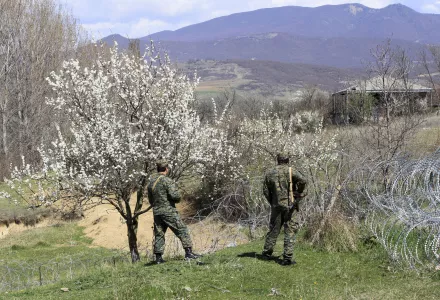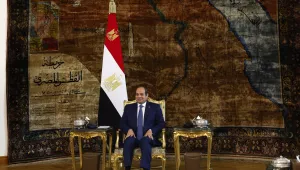Speaker: Natia Gamkrelidze, Postdoctoral Fellow, International Security Program
This presentation explores the phenomenon of "borderization" in Georgia, a term coined to describe Russia’s gradual, unilateral extension of Georgia’s breakaway regions of South Ossetia and Abkhazia. The study critiques the term for oversimplifying a complex and dynamic process that better aligns with "creeping occupation," a more precise characterization of Russia’s tactics. Unlike "borderization," which suggests the passive creation of borders, "creeping occupation" highlights the illegality and continuous expansion of Russian control, emphasizing the dynamic, unpredictable, and unilateral nature of these territorial shifts.
Through an examination of Russia’s practices in Georgia since 2008 and drawing on empirical evidence from Georgia, this presentation will examine how creeping occupation undermines local communities, disrupts livelihoods, and destabilizes the region through incremental control without formal annexation. It will also evaluate the roles of international actors, such as the European Union, the Organization for Security and Co-operation in Europe (OSCE), and the United Nations, arguing that current efforts overly emphasize monitoring rather than preventing the further expansion of Russian-controlled areas.
Finally, the presentation anticipates the application of similar Russian strategies along the far more extensive and contentious border with Ukraine, emphasizing the need for policymakers to prepare for evolving frontier conflicts. This analysis advocates for abandoning the term "borderization" in favor of "creeping occupation" to more accurately reflect the ongoing nature of Russia’s territorial expansions
This presentation is based on a study that Natia Gamkrelidze co-authored with Michel Vincent Anderlini (Assistant Professor in Global Political Studies at Malmo University) and Rick Fawn (Professor at the School of International Relations at St Andrews University).
Admittance is on a first come–first served basis. Tea and Coffee Provided.





